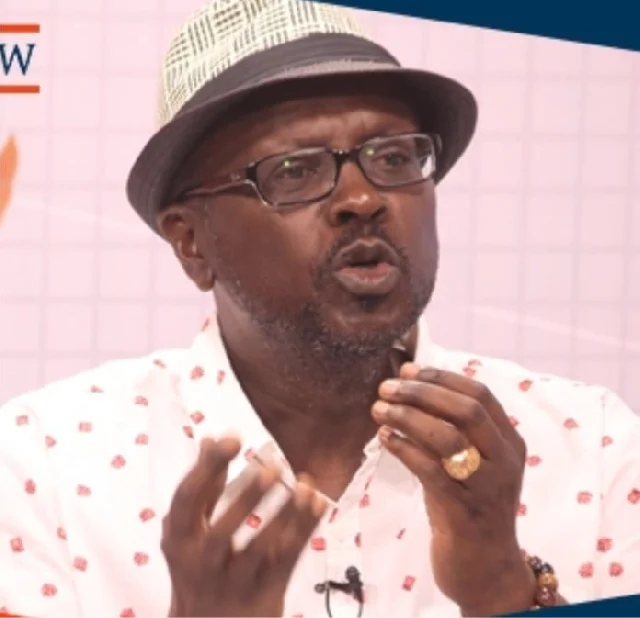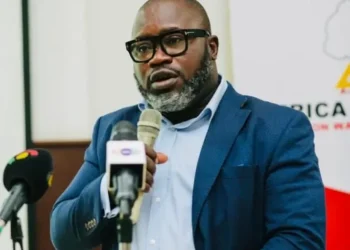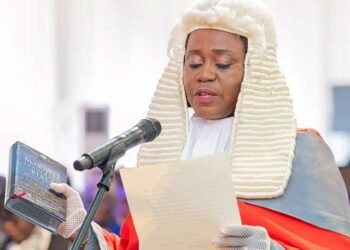The judiciary of Ghana finds itself under a glaring spotlight as Professor Stephen Kwaku Asare, a Democracy and Development Fellow in Public Law and Justice at the Centre for Democratic Development and legal scholar, has filed a petition for the removal of the Chief Justice, Her Ladyship Gertrude Sackey Araba Esaaba Torkornoo.
Citing grounds of stated misbehaviour and incompetence, the petition, submitted to the President in accordance with Article 146 of the 1992 Constitution, laid bare allegations that, if proven, could fundamentally reshape the perception of judicial independence in Ghana.
“My petition does not arise from the Chief Justice’s exercise of her judicial functions. Accordingly, the petition does not challenge any decisions, orders or directives issued by the Chief Justice in the performance of her duties as a Justice of the Supreme Court, including those made to enforce judgments, decrees or orders in cases she has adjudicated.
“I fully understand, respect, and value the importance of decisional independence.”
Professor Stephen Kwaku Asare
At the core of Professor Asare’s petition is an accusation that the Chief Justice engaged in constitutional overreach by directly requesting the appointment of five specific Justices of Appeal to the Supreme Court.
According to the petitioner, this action not only bypassed the Judicial Council’s mandate but also contravened the constitutional process outlined in Article 128(1) and Article 144.
The petitioner alleged that Her Ladyship’s actions reflect a blatant disregard for established administrative and constitutional protocols.
He highlighted correspondence between the Chief Justice and the President, in which the former purportedly initiated discussions to increase the minimum number of Justices on the Supreme Court—actions that fall squarely within Parliament’s jurisdiction.
“Of concern to your Petitioner is the fact that both letters proposing an increase in the minimum number of Justices on the Supreme Court of Ghana and the other requesting five specific Judges to be appointed to the Supreme Court were written on the letterhead of the Chief Justice and clearly expressed itself as the Chief Justice’s personal request on the matter.
“The letter did not refer to any consultation or involvement of the Judicial Council [the Council of which the Chief Justice is a member and within whose constitutional mandate it lies to deal with matters relating to the appointment of Justices of the Supreme Court.”
Professor Stephen Kwaku Asare
Even more troubling, the petitioner claimed that the Chief Justice presented these nominations to the Judicial Council as if they originated from the President, masking her role in the process.
Such alleged manoeuvres, if substantiated, could undermine the constitutional balance of power and cast doubt on the judiciary’s independence.

Allegations of Panel Interference and Transfer of Justices.
The petition further accused the Chief Justice of arbitrary reconstitution of judicial panels and the unwarranted transfer of judges.
These actions, according to Professor Asare, threaten the impartiality and independence of the judiciary, violating Articles 127(2) and 19(13) of the Constitution, which explicitly safeguard judges from undue influence.
The petitioner contended that the Chief Justice’s interference with duly constituted panels exceeds her administrative authority and constitutes a misuse of power.
“The Constitution is clear that no person, including the President, Parliament, and the Chief Justice, shall interfere with Judges or judicial officers or other persons exercising judicial power, in the exercise of their judicial functions (see article 127(2)).
“Thus, the reconstitution, under the guise of exercising administrative power, is a glaring abuse of her office and a fundamental misunderstanding of the boundaries of the Chief Justice’s administrative authority. The abuse of her administrative power to interfere with panels’ judicial function meets the threshold of stated misbehavior.”
Professor Stephen Kwaku Asare
Prof. Asare cited the reconstitution of the judicial panel of the ongoing case involving Mr Opuni (The Republic u. Stephen Kwabena Opuni, Seidu Agongo, Agricult Ghana Ltd) as a glaring example of the Chief Justice abusing his administrative powers to reconstitute a duly constituted Supreme Court panel that is seized of matter on the judicial side.
He argued that this behavior not only disrupts the integrity of judicial proceedings but also demonstrates a fundamental lack of understanding of her administrative boundaries—a claim that raises questions about her competence as head of the judiciary.
These critical issues among several others are the foundational reasons responsible for Prof. Stephen Kweku Asare’s call for the removal of the Honourable Chief Justice. This petition lands at a critical juncture in Ghana’s democratic evolution.
The judiciary, often regarded as the final bastion of justice, cannot afford even the perception of compromise. Allegations of administrative overreach and interference with judicial panels strike at the heart of the judiciary’s mandate to uphold the rule of law impartially.
Professor Asare’s petition underscores the critical need for transparency in judicial appointments and administrative decisions. If the Chief Justice is found to have engaged in unconstitutional conduct, it could set a precedent for holding judicial leadership accountable.
However, if the allegations are unsubstantiated, the process could serve as a reaffirmation of her integrity and the robustness of Ghana’s judicial systems.
Under Article 146 of the Constitution, the President is required to consult the Council of State and establish a committee to investigate the petition.
This committee, comprising two Supreme Court Justices and three non-legal members, will conduct its proceedings in-camera, ensuring confidentiality and protecting the dignity of the office.
The Chief Justice will have the opportunity to defend herself, either personally or through legal representation, in a process that promises to test the fairness and independence of Ghana’s constitutional safeguards.
Beyond the specifics of the petition, this case raises broader questions about governance and accountability in Ghana’s public institutions.
The allegations highlight potential systemic gaps that, if left unchecked, could erode public confidence in the judiciary. At stake is not only the reputation of Her Ladyship Gertrude Sackey Torkornoo but also the credibility of Ghana’s judiciary as an institution.
Whether the allegations hold water or are dismissed, the process must reflect the highest standards of justice, ensuring that the judiciary emerges stronger and more resolute in its duty to serve the people.
READ ALSO: Kosmos Energy Ends Preliminary Discussions for Tullow Oil Acquisition























